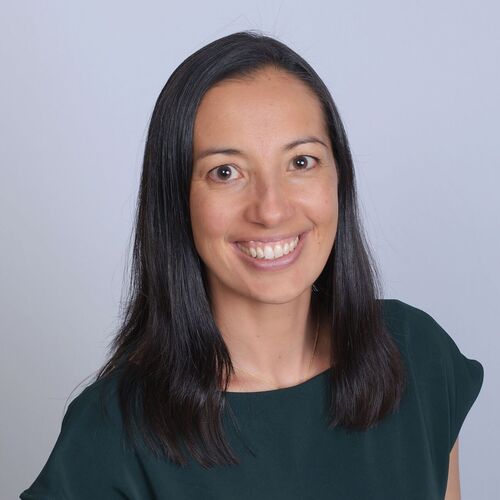Posted on
Impact Academy: Learning from common challenges
Category: Leadership
As readers of this blog know, Deans for Impact in August launched the inaugural cohort of Impact Academy, a leadership development experience for deans. Eleven deans (or Fellows, as we call them) spent four days, working with each other and more experienced mentor deans, doing something they rarely get time to do: orient themselves for learning, rather than leading. The learning has continued even now that the Fellows are back at their respective campuses, as Fellows have been continuing to work with their “Learning Teams” – groups of three Fellows led by one member dean – on how to address challenges within their programs.
As we’ve checked in with the Learning Teams this fall, one thing has struck us: Even though each of the Fellows come from different institutional contexts, the nature of their on-going leadership challenges have much in common. Here are three themes that have surfaced regularly during those calls this fall, along with some questions about which we think all leaders of educator-preparation programs should be thinking.
MOVING FROM VISION TO ACTION
Most Fellows returned to their campuses from Impact Academy with a clearer vision of the improvements they want to make in their educator-preparation programs. And most Fellows have experienced early success communicating that vision with key people and stakeholders on campus. But, they also know that these initial conversations won’t be enough to achieve significant improvement in educator preparation, so now they are thinking about how to move from vison to action. To do that, deans will have to engage other people who are part of a teacher candidate’s learning experience – such as faculty, clinical instructors, and K-12 teachers and principals. As Fellows take the temperature of their organizations, they are asking each other important questions like:
- Who are my allies for this vision?
- What do the faculty value?
- What would a good result look like?
USING DATA FOR ORGANIZATIONAL LEARNING
It’s an on-going challenge for deans to focus on improving culture and programs when they are constantly being pulled into other (important) issues. For example, many of our Fellows and member deans are trying to use data to better understand what teacher candidates are learning, and how program completers do when they graduate. But, they often find themselves mired in activities where data is primarily used for compliance purposes. Put another way, our Fellows are interested in using data for inquiry, but their Colleges are often organized for compliance. So, the Fellows are asking important questions like:
- What does inquiry (learning from data) look like when it has to sit next to compliance (things we have to do)?
- How can those who deliver the instruction and coaching to teacher candidates model the inquiry and learning that they expect from their candidates?
- How can I reorganize faculty, clinical instructors, and their K-12 partners in ways that allow them to use data for inquiry, rather than just for compliance?
LEADING THROUGH SHRINKING BUDGETS
Many Fellows lead organizations that are facing budgetary challenges. A recent, brutal recession and declining enrollment in many teacher-education programs mean that leaders have to do more with less. But, our Fellows see both challenges and opportunities in this fiscal environment: while shrinking financial resources can create obstacles to their visions for educator preparation, it also provides, in some circumstances, a reason for difficult college-wide conversations about which programs and initiatives they (and their Colleges) want to prioritize in the future. Everyone who works in educator preparation has a budget – and asking questions about where and how the organization spends its money can help clarify the most efficient ways of pushing resources towards the experiences that we think have greatest impact on a teacher candidate’s learning and preparation to teach.
- How can I help people think about money as something that comes from partnerships, and not just credit hours?
- How can I find new ways to reward the non-tenure track people who teach so many of our teacher candidates?
The three challenges faced by our Fellows are ones we think many leaders will face as they work to ensure their educator-preparation programs are meeting the needs of the students and families in their communities. As we support our Fellows this year, we’ll continue to share what they’re learning along the way. Stay tuned.
Related Stories:

Blog
Impact Academy Fellowship: Helping deans move from managing to leading
How can I move from managing my team to leading for transformational change?
January 02, 2022

Blog
How Impact Academy helped me grow as a dean
When I joined Deans for Impact in 2015, I was pleased to take a seat at the table with education...
January 26, 2017

Blog
Impact Academy: Learning as leaders
“As a dean of education, I have often felt isolated and alone in deciding what is good enough for...
September 13, 2016

